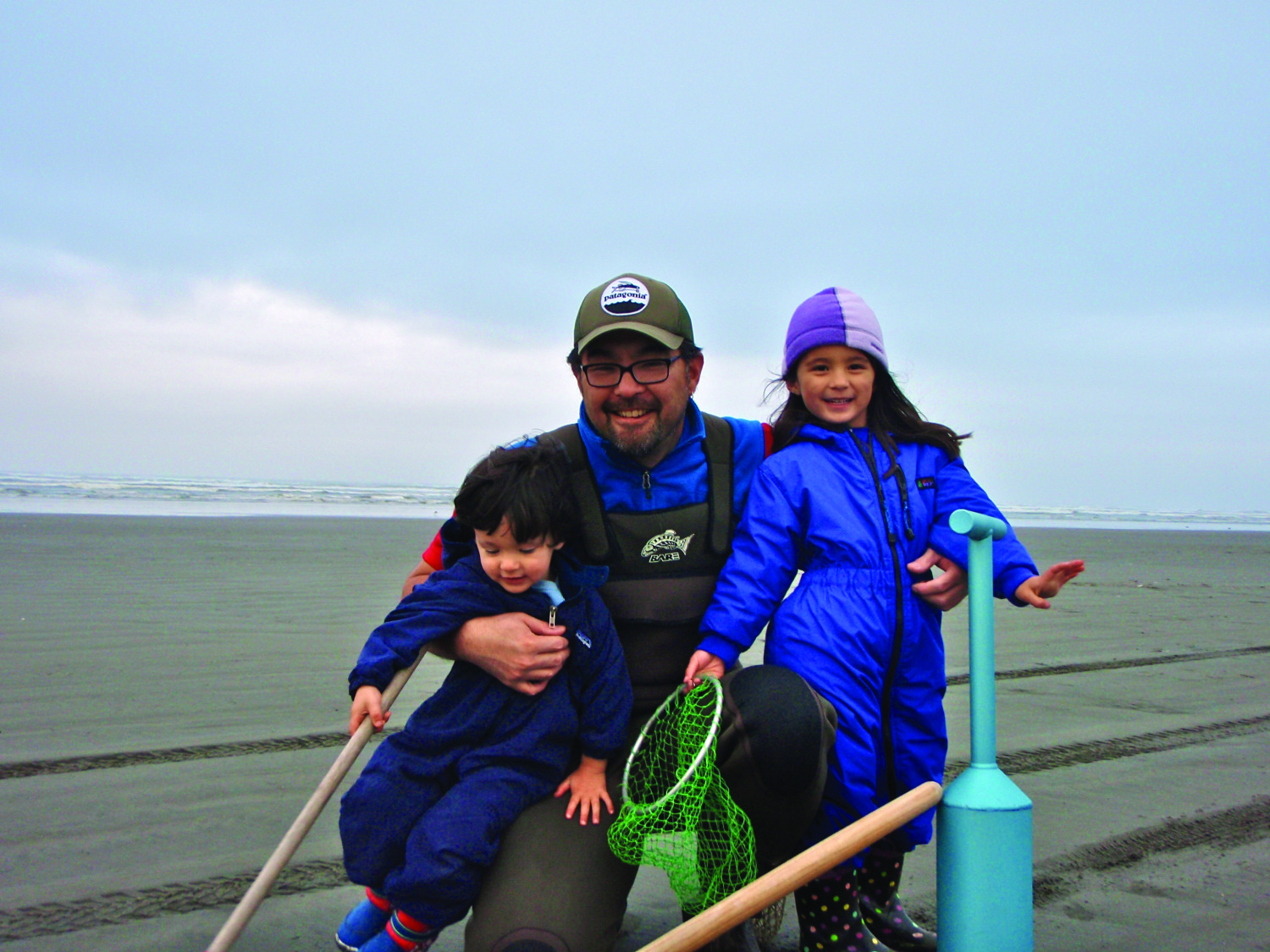
Dylan Tomine and his wife, Stacy, moved to Seattle in 1992, and about a year after their daughter was born, they settled on Bainbridge Island, moving there in 2004.
“I wanted to get back to the Northwest, and I wanted to be somewhere I could fish for salmon and steelhead nearby.” Tomine
“When Skyla was born, we were still living in Seattle dealing with the usual city things, traffic and crime — we wanted to live somewhere a little more rural and a little more kidfriendly.”
Bainbridge Island put the family next to the Puget Sound, a home base that made them feel attached. “It was a relief to be here,” Tomine said. “It felt more comforting to me to be close to the Sound and having access to the saltwater.”
There, the Tomines had another child, a son named Weston, and they connected to the world around them, taking advantage of gardening, fishing, clamming and harvesting wild plants for consumption. Tomine wrote a book, Closer to the Ground (published in 2012 by Patagonia Books), chronicling their life as an outdoor family.
![]() “In the book you can see that we, as a family, have a really good connection to the Washington Coast,” Tomine said. “It’s a place to live where there are opportunities that are just outside our doors — and a lot of those opportunities involve food, which makes it even more satisfying. There’s hardly another place that has this much edible food around it. To be here and not take advantage of it would be a shame.”
“In the book you can see that we, as a family, have a really good connection to the Washington Coast,” Tomine said. “It’s a place to live where there are opportunities that are just outside our doors — and a lot of those opportunities involve food, which makes it even more satisfying. There’s hardly another place that has this much edible food around it. To be here and not take advantage of it would be a shame.”
Though he grew up in Corvallis, Ore., and went to college in California (where he had started out as premed and then changed his major to English writing), home now is the Sound and the coast.
“I love Grays Harbor and I love Willapa Bay,” Tomine said. “I love the ocean beaches down there and being able to dig clams with the kids and let the dogs run around.”
The book can be used as a loose guide to different outdoor activities throughout the Sound and along the coast.
“If you’re an outdoor person with kids, it’s really a good welcome-to-Washington book,” Tomine said. “You can read what there is to do and how to do it.”
Aside from being a somewhat guide, the writing also is clear and vibrant, and the stories are heartfelt, sometimes becoming artful, and always warm with emotion.
“You can have these outdoor adventures close to home — you don’t have to go up to Alaska,” Tomine said. “For me, this book is about being grateful for how lucky I am for the life I have with my wife and my kids.”
Book Excerpt
Tomine and his daughter Skyla are driving away from the beach after an unsuccessful oyster harvest when they pass an older man who had had a successful day:
The guy was still there, returning to his car with a jar of shucked oysters and a bucket of steamer clams. When he saw us, he tried to hide his bounty, clearly unhappy that we’d found his secret spot. I pulled over and waved, and he ignored me, moving quickly now to avoid us. So I unleashed my secret weapon. It would take a hard heart to ignore a little girl in knee boots running up to see what you’ve caught. When Skyla told him of our failed venture, his defenses melted away, leaving a friendly grandfather happy to share the secrets of his no longer secret spot. He pointed out where the clams lived and told us that if we kept going around the corner, we’d find more oysters than we could imagine.
Tomine and his daughter have a successful dig at the old man’s spot, and later at dinner, a family friend asks where the spot is. Awkwardness ensues when Tomine refuses to reveal the location.
But really, What else could I do? Did I have some kind of proprietary right to ‘our’ oyster beach merely because I’d stumbled into the old man coming back to his car? Was I being selfish and paranoid? Probably. But, as our regional punkpoet laureate, the late Kurt Cobain, reminded us in his paraphrase of a Nixonera bumper sticker: Just because you’re paranoid don’t mean they’re not after you. Or your oyster spots.